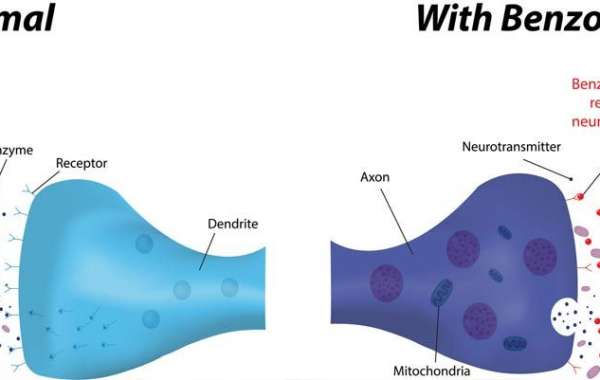Benzodiazepines are a group of depressant drugs which are prescribed for the treatment of anxiety and insomnia. They are also used for the treatment of seizures. However, they can be dangerous if they are abused. They are also mis-sold as diazepam, and they can be crushed and snorted, and they can cause overdose.
Benzodiazepine doses are increased gradually
Benzodiazepines are commonly used to treat patients with a variety of mental disorders. However, they also carry an increased risk of overdose, abuse, and addiction. The risk of abuse increases with more frequent use. Therefore, benzodiazepines should be used only as necessary.
Benzodiazepines should be used with caution in patients with a history of psychiatric disorders, autism, or bipolar disorder. They should also be used with caution in patients with liver or kidney disease. They also should be used with caution in patients with delirium or dementia. They should also be used with caution in breastfed infants.
If benzodiazepines are prescribed for a long period of time, it is important to monitor the patient for abuse. Abuse can be fatal, and it can lead to severe withdrawal symptoms. Benzodiazepine misuse may also cause seizures, coma, or death.
Benzodiazepine abuse and overdose
Benzodiazepine abuse and overdose is a growing concern in the United States. These drugs are commonly prescribed by doctors for insomnia, anxiety, and muscle spasms. They also enhance the euphoric effects of opioids and other drugs. But they are addictive and can cause serious health problems.
Benzodiazepine abuse and overdose can be fatal. When a person stops taking a benzodiazepine, they can experience withdrawal symptoms. The risk of death is also higher if the person combines benzodiazepines with opioids. In addition, people who take both drugs often experience cognitive dysfunction. These symptoms include confusion, short-term memory loss, and delirium.
Benzodiazepine abuse is common among young adults. Benzodiazepine overdose rates in this age group increased between 2011 and 2013. This trend is particularly apparent among black and Hispanic people.
Benzodiazepine interactions with other drugs
Benzodiazepines may have a few duds, but they are a dime a dozen in most medical facilities, and are safe to boot. Although a single dose can be overwhelming, the long-term benefits are many. The best bet is to start out with a low dosage and build it up over time. Benzos are most commonly administered intravenously in a controlled environment. However, many are also self-administered. Some drugs to avoid include phenobarbital, barbiturates, and alcohol. A high potency benzo may be used as a symptomatic treatment as the antidepressant dose is tacked on to a larger dose.
Benzodiazepines can be administered orally or parenterally. Although the drug of choice for many may be alcohol, they can also be administered intravenously in a controlled environment.
Clonazepam
Benzodiazepines are drugs that slow down the central nervous system (CNS) and are used to treat anxiety, seizures, and panic disorders. They are used to treat withdrawal symptoms and can be prescribed to help a person get off alcohol.
Benzodiazepines should be used with care. They can cause physical dependence and withdrawal symptoms when they are stopped suddenly. It is also possible to overdose.
Clonazepam is a prescription drug that is used to treat epileptic seizures and panic disorders. It is also used to treat substance abuse and addiction. It is considered a highly addictive drug. The side effects of clonazepam include drowsiness and a loss of coordination.
Crushed and snorted pills
Benzodiazepines are prescribed to treat a wide range of conditions. These include anxiety, insomnia, and panic disorder. Some people crush and snort the pills to achieve the desired effect. However, this method can be dangerous.
Benzodiazepines work by slowing down the central nervous system. The effect is usually felt as a sedation. They also slow the heart rate and reduce anxiety.
Some people also use benzodiazepines to chase a euphoric feeling. They take higher doses than prescribed. They also mix the drugs with other substances. These methods can also lead to addiction.
Snorting can damage the nasal cavities and larynx. Snorting also increases the risk of respiratory depression. These effects can be life-threatening.
Benzodiazepine mis-sold as diazepam
Benzodiazepines are muscle relaxants. They are widely used for the treatment of anxiety disorders. They also have anticonvulsant effects. However, they are also highly abused.
Benzodiazepines are categorized into three categories: short-acting compounds, intermediate-acting compounds, and long-acting compounds. They can be found in various formulations and strengths.
Benzodiazepines are known to enhance the effects of opiates. When taken in combination with opioids, they can cause a life-threatening overdose. They are also known to increase the risk of developing dependence.
The main symptoms of overdose include drowsiness, dizziness, ataxia, confusion, and diminished reflexes. They can also cause coma and respiratory depression. The condition may require repositioning, intravenous fluid therapy, and monitoring of respiration.








